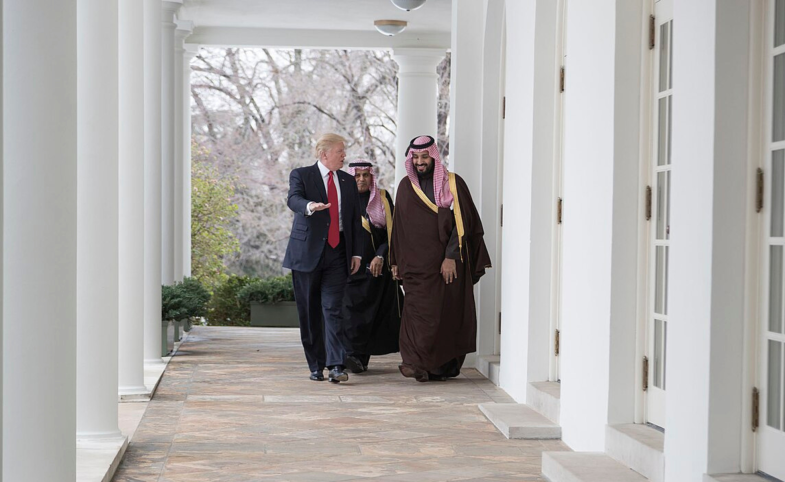The CPD Blog is intended to stimulate dialog among scholars and practitioners from around the world in the public diplomacy sphere. The opinions represented here are the authors' own and do not necessarily reflect CPD's views. For blogger guidelines, click here.

Why Saudi Crown Prince’s U.S. Visit Can Boost Public Diplomacy
As Saudi Crown Prince Mohammed bin Salman prepares to go to the United States this month – his first official visit since 2018 – the Kingdom has a prime public diplomacy opportunity, and responsibility. Despite the significant social and cultural shifts that Saudi Arabia has undergone over the past decade, it is safe to say that the country remains one of the most misunderstood in the world. Tired tropes, playfully captured in a recent viral video by the Tourism Development Fund, continue to dominate perceptions of its culture and society.
When most people think of Saudi Arabia, the usual images of austere religion, women without agency, and bottomless financial and natural resources prevail. Previous public diplomacy was mostly targeted at neighboring countries in the Arab and Muslim world and driven by religious outreach. However, with the Vision 2030 economic diversification and social reform plan, the country has grown more vocal on the international stage, and global attitudes are gradually shifting from aversion to curiosity. The Crown Prince’s team should capitalize on this feeling during his visit and provide American audiences – who may have never visited the country or even met a Saudi before – with opportunities to learn more about Saudi Arabia’s diverse society and ongoing national transformation.
Currently, the noisiest global public debate around Saudi Arabia and culture is centered on its cultural imports, peaking whenever it hosts international celebrities and events. Critics are relentless in their accusations that this all amounts to reputation-laundering performances for the West, while an increasingly vocal opposing group retorts that this is a narrow-minded view that neglects the Kingdom’s own domestic interests and economic priorities. As an American public diplomacy advisor living in the Kingdom over the past three years, it’s difficult to embrace the accusations of sportswashing, greenwashing, and various other forms of “-washing.” Selfishly speaking, being able to access leisure activities such as concerts and sports games makes it easier for foreigners to fathom living in a desert environment where malls and restaurants are still the primary options for social engagement. This is important for attracting tourists and foreign investment, key priorities for the Kingdom.
"The Crown Prince’s team should capitalize on this feeling during his visit and provide American audiences – who may have never visited the country or even met a Saudi before – with opportunities to learn more about Saudi Arabia’s diverse society and ongoing national transformation."
But it is not these events that will enhance the reputation of the country and its people overseas. Rather, it is cultural exports through public diplomacy outreach showcasing Saudi culture and people – that can help accomplish this. Saudi Arabia is already ramping up its cultural diplomacy around the world, from presenting cutting-edge design at the Venice Architecture Biennale and hosting an award-winning pavilion at the Osaka Expo, to showcasing Saudi couture at fashion pop-ups in London. While the Crown Prince’s visit is largely expected to focus on bilateral cooperation and business engagement, the team should also use the trip as an opportunity to showcase Saudi culture and connect with local populations as they’ve successfully done in Japan, Italy, Uzbekistan, and elsewhere.
Cultural programming during the Crown Prince’s U.S. visit should place Saudi students, artists, and performers front and center, communicating and interacting with audiences.
The heart of public diplomacy also lies in shared values, dialogue, and the connections binding two different cultures rather than one-way promotion (and importantly, how some scholars differentiate public diplomacy from propaganda). For U.S. audiences, cultural themes that are likely to resonate include sustainability, climate, and the debate around evolving gender roles. For example, in the sustainability and climate space, Saudi artists – including Manal AlDowayan and Dr. Zahrah Al-Ghamdi – grapple with questions of environmental degradation, global warming’s impact on gender roles, and nature stewardship. Another area in which Saudi cultural diplomacy can play a leading role is in the conversation around wellness and mental wellbeing, an issue that is particularly salient in the U.S. today. Community and hospitality play a central role in Saudi life, and this can be shared with American counterparts through majlis gatherings, intimate lectures and exchanges, and the promotion of dialogue.
While skeptics of soft power and public diplomacy question the purpose of such outreach, particularly when the Saudi government is already pursuing its interests more or less successfully using traditional diplomacy (and even more so under the current amenable American administration), there is something to be said about people-to-people diplomacy not only as a lever of these economic and strategic goals, but also as an end in itself. Academic literature has demonstrated that while public diplomacy operates on a longer timeline, taking decades or more to take root, its impact can also be long-term. Successful programs not only increase awareness and understanding of a country and its policies, but they can enhance social trust between people, credibility, and cultivate empathy and goodwill. In turn, this can lay the groundwork for future cooperation between publics, all necessary ingredients for achieving the different objectives in Saudi Arabia’s Vision 2030.
Visit CPD's Online Library
Explore CPD's vast online database featuring the latest books, articles, speeches and information on international organizations dedicated to public diplomacy.
POPULAR ARTICLES
-
January 20
-
December 17
-
December 15
-
January 2
-
January 28
Join the Conversation
Interested in contributing to the CPD Blog? We welcome your posts. Read our guidelines and find out how you can submit blogs and photo essays >.









